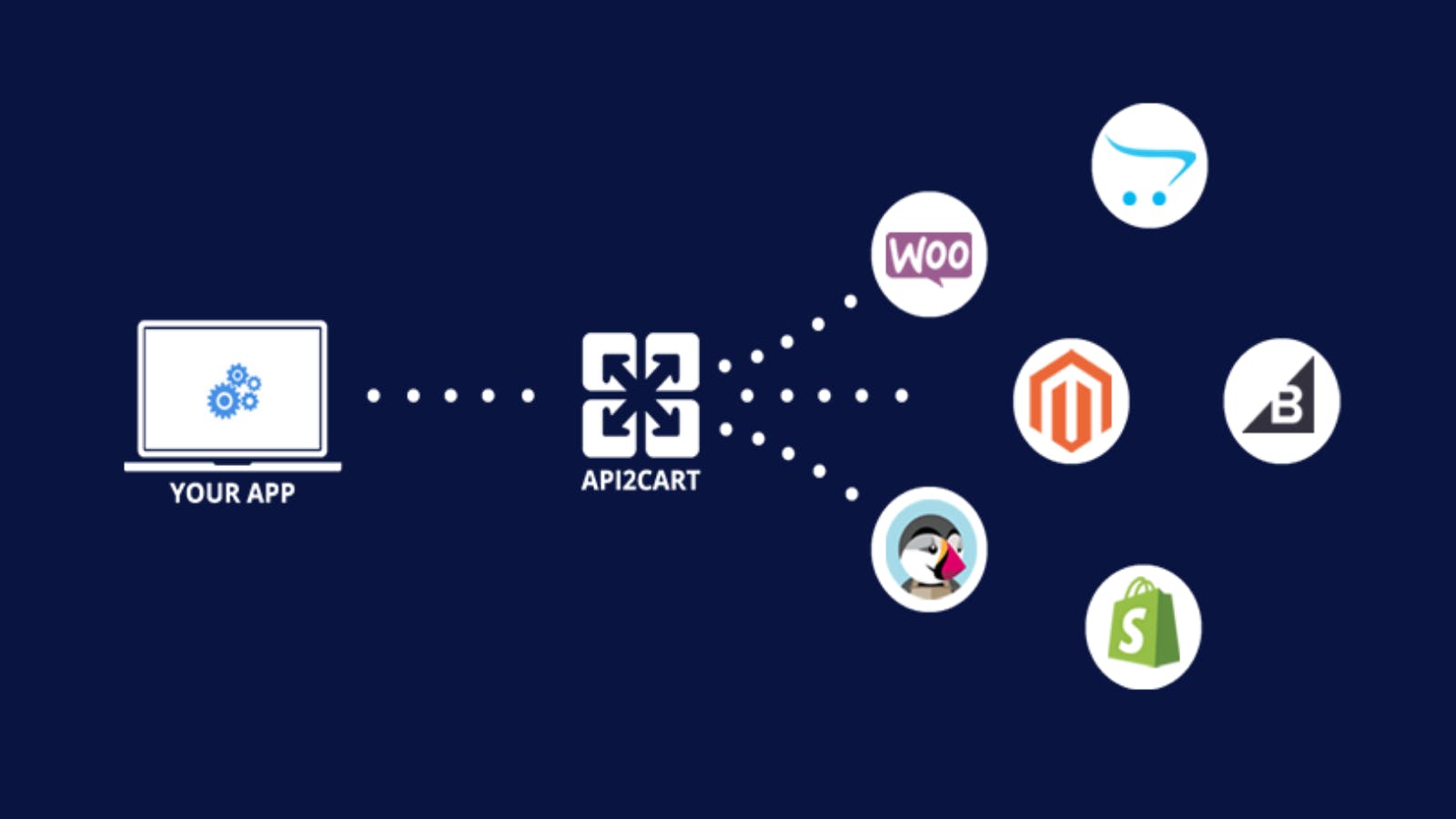As a growing number of businesses are shifting their operations toward the digital sphere in 2022, it becomes mandatory for SaaS business providers to consider the importance of eCommerce data integration for them.
As a modern B2B eCommerce software provider, you must develop reliable and robust data integrations between your solution and all major shopping carts, such as Magento, Shopify, OpenCart, BigCommerce, WooCommerce, X-Cart, or Wix. This is mandatory, especially if you want to grow your business, skyrocket your sales, and expand into new verticals and markets.
The entire point behind performing such a data integration is to gain unrestricted access to the data of the online stores based on these platforms. This data includes products, orders, taxes, shipping statuses, descriptions, shoppers, baskets, warehouse stocks, and so on.
The ability to access this data from eCommerce platforms is the lifeblood of any modern eCommerce software. For example, using this type of data can allow your software to perform the following operations:
- Track products in real-time
- Set up shipping details, such as names, addresses, shipping methods, etc
- Create customized reports that you can send to the upper management
- Manage orders, boosting fulfillment rate and increasing listing accuracy
- Sync the inventory between several sales channels
- Organize warehouse operations
- Update products, inventory, stocks, and site details in real-time, on both mobile and desktop devices
- Create product catalogs and feeds
The actual type of data you need to gain access to depends on your sphere of work and your niche. For instance, if you have shipping management software, you need to gain access to order details, customer info, product info, and courier info to make sure you can automate shipments and offer high-end services to your target niche.
Below, we’d like to take a deeper look at all the information related to data integration development in the eCommerce sphere, showcasing tips on how you can easily develop a reliable connection with a wide range of eCommerce platforms.
Defining eCommerce Data Integration Development
In simple terms, eCommerce data integration development represents the process of setting up a connection between your SaaS app and the APIs of shopping platforms. This complex process involves using certain lines of code that connect the two systems, with the result of allowing you to pull out data related to your clients’ operations and utilize that data to provide high-end services tailored to e-shop owners’ needs.
This data that you can use after an eCommerce data integration development includes information about your customers’ e-store orders, products, shoppers, inventory, stocks, taxes, etc. The more integrations you manage to complete, the easier it gets for your business to extend into new verticals and niches while also being able to target more customers.
Let's get practical better to understand the concept of eCommerce data integration development. For instance, an inventory management software should integrate with Magento API to automatically pull data related to inventory and products. Without integration, the software provider needs to pull data manually, so their service would lack the accuracy and speed required in today’s competitive market.
When it comes to the perks you can get by performing such an integration, we need to mention:
- You will be able to process a vast amount of data related to inventory, products, orders
- You will be able to dramatically expand your customer database and gain access to millions of potential customers using platforms such as OpenCart, Amazon, Shopify, Magento, ZenCart
- Your team will also be able to innovate and develop new, improved features for your product
Exploring the Challenges Associated with Data Integration Development
No doubt, every SaaS company owner would love to reap the above perks for their business. Nevertheless, the integration process is quite tedious and requires a lot of hard work, plus a substantial financial investment.
Below are some of the challenges you should expect to overcome when choosing to perform an eCommerce data integration in 2022:
- Lengthy process: it could take up to 12 weeks for a single integration to be completed
- Tedious: you need to find the right team for the job, which places a huge strain on your human resources department
- High cost: expect to pay up to $10k for just one integration, especially for those platforms that require specialized knowledge
- Risky process: a manual integration could pose serious threats to your company, especially with the number of cyber-attacks on the rise
How to Perform an eCommerce Data Integration Development Easily
At this point, you probably agree that you would do anything to make sure you won’t get to experience the integration challenges mentioned above. The amazing news is that there is a simple way to do just that, and it involves using a third-party solution for the integration. One of such solutions is API2Cart.
API2Cart is a unified API that allows any type of SaaS business to connect with more than 40 shopping carts at once and perform reliable data integration connections. Using this seamless service, you will be able not only to save months of tedious work and tens of thousands of dollars, but you’ll also gain the peace of mind that your integrations are secure, hack-free, and require minimum maintenance.

API2Cart provides the integration with Magento, Shopify, WooCommerce, Amazon, eBay, Walmart, OpenCart, and many other shopping cart solutions and marketplaces. Using API2Cart API methods, it is possible to access and manage the data related to the e-stores’ orders, prices, products, taxes, etc.
Conclusion
Data integration development is a must for software providers working in the eCommerce sphere. Regardless of your niche or services, you’re offering your target customers, connecting your system with as many shopping carts as possible is essential. You can use a third-party integration service such as API2Cart and avoid falling into specific integration pitfalls, mistakes, and challenges.

